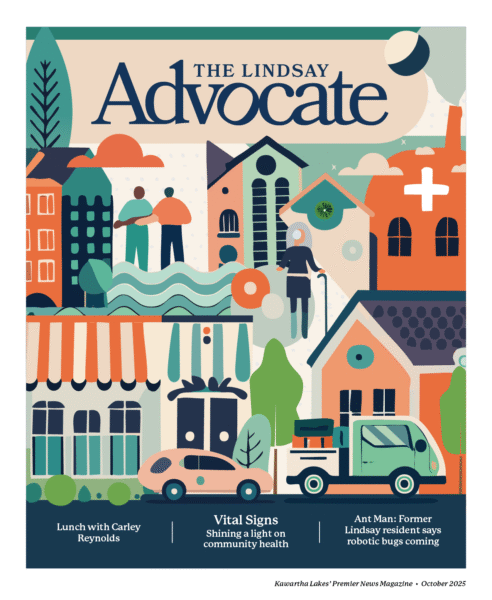A Place Called Home acknowledges 30 years of service to community

When A Place Called Home opened in 1995, staff never imagined it would turn into the space it is now is 30 years later.
It’s a bittersweet feeling for many like Zita Devan, founding chair of A Place Called Home. Devan is proud of the work the organization has done but is also disappointed that there’s still a need for their services. “We shouldn’t be saying we’re celebrating because there’s nothing to celebrate about having homeless,” she said.
She said back in 1995 many people told her the community was facing a housing crisis, words often still heard today. “I don’t know why they call it a crisis. When you have a crisis, you do something about it,” she said.
What started off as a five-bedroom house has blossomed into a community hub that offers vital services for those in need. The building, located on Lindsay Street, offers emergency shelter for men, women and children, providing them with bedding, meals, access to hygiene, and support. They also offer drop-in services for those who are worried they may be at risk of becoming homeless to receive assistance.
Nicole Bryant is the shelter and drop-in manager and has worked at the shelter for 26 years. She has seen many changes in how things are run. “There were homeless, but there was never a time where I felt that we weren’t meeting the need,” she said.
They weren’t dealing with external crises like the mental health and substance abuse seen today. Instead, they were dealing with things like family breakdowns and those going through temporary job loss where they knew they’d be employed and back on their feet in a couple of weeks.
“It was usually very situational and resolved, and then we wouldn’t see them again,” Bryant said.
The staff does their best to make those coming in feel welcomed, despite being in an unfortunate situation. “Whether you’re staff or someone seeking support, you’re treated with dignity and respect…for most folks that you’re serving that’s what they need at that point in their lives,” said Angela Ricciuti, executive director of A Place Called Home.
To mark the occasion of being open for 30 years, an anniversary event will take place on Friday Oct. 10 at Saint Andrew’s Presbyterian Church from 7-9 p.m. Tickets are free. “We would really welcome anybody who’s interested. Whether they’ve been involved with A Place Called Home for years, or whether they’re just wanting to get to know what we do, to come to that celebration,” Bryant said.
Eventgoers will be treated to presentations, guest speakers and live music to acknowledge the history of the organization.
A Place Called Home plans on continuing their work of serving those in need with no judgment. Bryant says while they do provide the most basic of needs, such as food and shower facilities, they’re “also making sure that you feel like a human,” something that makes all the difference for those facing homelessness.





In the 1950s, Pierre Berton wrote that the difference between Canada’s wealthy and Canada’s poor was that the wealthy lived in brick houses while the poor lived in wooden houses. Of course, Berton was exaggerating; there have always been homeless and desperately poor people. I remember visiting a Toronto family in the 1960s that had twelve children, very little furniture, clothing or food, and a father who I witnessed cooking up shoe polish on the kitchen stove. He and several of the older children were in and out of jail. But they were Catholic and so couldn’t use birth control or get a divorce. I gave away all the Christmas money I had saved up another year as a teenager as I walked down Yonge Street trying to Christmas shop. So thank goodness things have changed enough that we have good facilities like A Place Called Home. We still have lots of encampments but most homeless now have cell phones and some sort of tenting shelter that is better than the doorways, cardboard and newspapers many homeless used to try to fashion into shelter from the winter sleet and winds. Homelessness and poverty are no joke. They cause mental illness more often than mental illness causes homelessness. Homelessness is a social injustice, first and foremost.